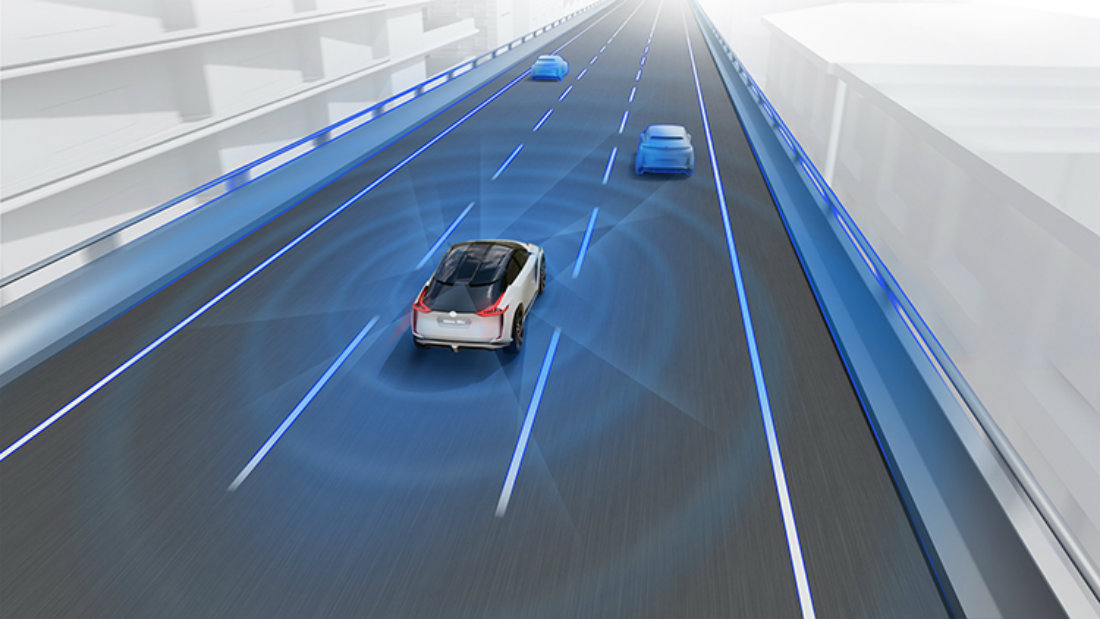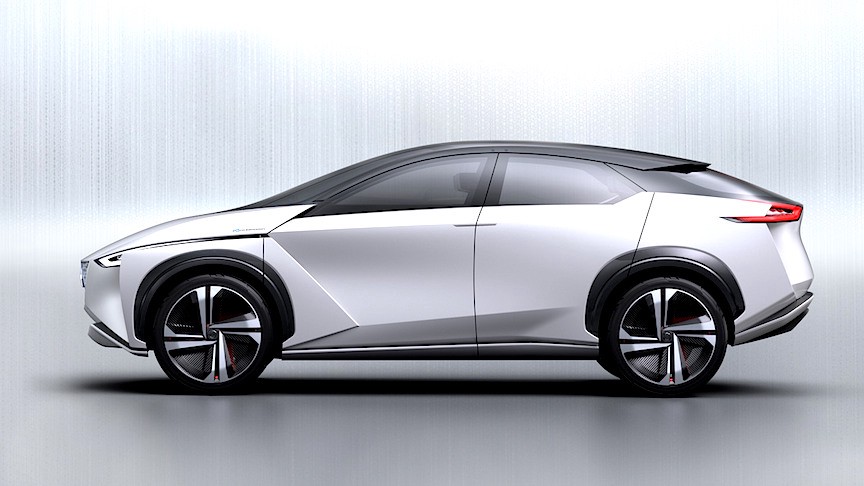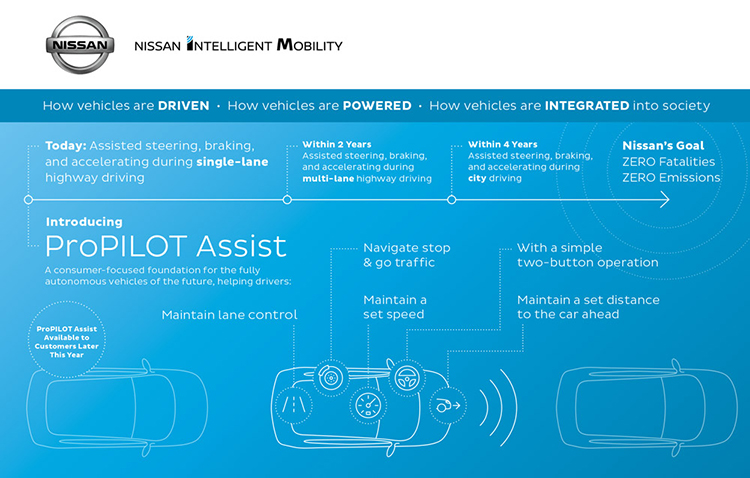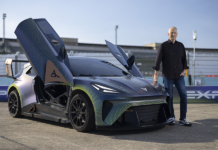
Buzz has a fireside chat with José Muñoz, Chief Performance Officer at Nissan about the future of mobility. As CPO, Muñoz is responsible for the company’s overall results and the implementation of strategies to ensure efficiency and transparency in Nissan’s global operations.
How is Nissan’s Intelligent Mobility strategy positioning the company for the future of the global car industry?
Nissan Intelligent Mobility is our vision to deliver more autonomy, more electrification, and more connectivity to move our customers to a better world. It provides a singular vision for us to differentiate the Nissan brand and develop great products that deliver value for our customers.
Take the new LEAF as one example. In a single vehicle, it delivers the benefits of each pillar of Nissan Intelligent Mobility: intelligent driving through the autonomous drive capability of ProPILOT or ProPILOT Assist in the U.S., intelligent power through the excitement of the pure EV powertrain, and intelligent integration though the unique ability to connect the LEAF battery to homes and to the power grid.
Every piece of technology that we add to one of our products is intended to add value for our customers and deliver a benefit that they can see and feel in their daily lives. Nissan Intelligent Mobility serves as the guiding force behind all of these technologies and the benefits they provide to our customers. So we believe there are tremendous opportunities for us as more customers learn the benefits that Nissan Intelligent Mobility can deliver for them.

How well is Nissan positioned for the growth of the electric vehicle market? What are your main competitive advantages?
In 2010, Nissan pioneered the very idea of a mass-market electric vehicle with the launch of the first-generation LEAF. Back then, we were the only company willing to take that chance. Today the Nissan LEAF remains the world’s best-selling EV, with more than 300,000 sold in 49 markets and billions of kilometers driven without a single major battery incident. So while many of our competitors are now following our path into mass market EVs, Nissan has the industry’s longest record of success.
So our experience and understanding of what customers want in so many different markets is important. The second thing is the combined strength of our global alliance with Renault and Mitsubishi. Our global alliance gives us the power of scale and also the unique ability to leverage synergies that our competitors simply do not have.
Just as important I would say is the fact that no other brand has a global network of dealers with as many years of experience selling and servicing EVs. I am constantly traveling to different markets around the world and speaking with our dealers. It is a part of this job that I enjoy the most because it gives me the opportunity to hear from the people who interact with our customers all the time. The same is true when it comes to my conversations with our EV customers. I can tell you first hand that no other car company can match Nissan’s large, loyal and passionate group of LEAF owners.

How do you expect the EV market to grow and what factors are driving this growth?
The way I see it, three main factors are driving the growth of EVs. The first is cost. As we have seen, the cost of EV battery technology continues to go down all of the time. In fact, we expect to reach the tipping point for the cost of EV motors to occur sometime in the middle of the next decade. That will be the point when producing internal combustion engines is expected to cost about the same as battery electric vehicle technologies. Once that happens, I personally expect many more customers to choose EV technology.
I would say the second factor is the availability of charging infrastructure. Nissan continues working with partners to expand charging infrastructure around the world. This is an important part of our overall EV growth strategy.
The third factor as I see it is customer experience and customer convenience. Whenever I speak to our EV customers, they are constantly telling me how much they enjoy never having to go back to the gas station during their daily drives. This is one of the first things that new EV customers notice after they purchase an EV for the first time. And I can tell you, every customer I speak with tells me how they never want to go back to the days of having to spend time at the gas station!
How will the new LEAF enhance Nissan’s position as an EV leader?
The new Nissan LEAF is the icon of Nissan Intelligent mobility because it delivers the benefits of all three pillars of this strategy: intelligent driving, intelligent power, and intelligent integration through one vehicle. The new LEAF offers even greater range, more advanced technology and a more exciting and enjoyable EV drive. In developing the new LEAF, Nissan was able to use our many years of experience and feedback from customers of the first generation LEAF to make this one even better.
So far the early customer response has been very strong in every market where sales have begun, and I am very confident that by continuing to democratize electric vehicle technology and by delivering breakthrough features like the e-Pedal, ProPILOT, and ProPILOT Park, the new LEAF will enhance our global EV leadership position even further.
What do you think the original LEAF contributed to the growth of the EV market?
The original Nissan LEAF led the way in the democratization of EV technology. Before then, there was no playbook to follow when it came to delivering reliable EVs to the mass market. So I believe that the first Nissan LEAF was very important in writing that playbook and setting the standard for the benefits that EVs can deliver to mass market customers. We are proud to be the pioneer for mass market EV technology and look forward to building on our leadership with the new Nissan LEAF.
On the Connected Vehicles side of Intelligent Mobility, what are you doing to add value to consumers? How are you convincing consumers?
In addition to the expansion of electrification on our vehicles, Nissan will deliver vehicles that are increasingly connected, intelligent, and autonomous. Connectivity has become a crucial part of the total customer experience today. It is also becoming more important in differentiating our brand. The Alliance is working toward the goal of having connected vehicles for all. More than 90% of Alliance vehicles will be connected to the Alliance Cloud in 2022. Nissan vehicles will be enabled with the services deployed by the common cloud platform, such as remote diagnostics, journey-planning and peer-to-peer car sharing. As the largest member of the Alliance, Nissan will be key delivering these technologies to mass market customers through Nissan Intelligent Mobility.
What is your roadmap towards autonomous driving? What will be the first benefits to Nissan drivers, especially on the safety side?
Nissan is putting the building blocks in place for autonomous drive technology to first build customer trust and acceptance of the technology. That is why we are rolling out AD technology through a careful step-by-step approach.

Nissan introduced the first generation of ProPILOT, which is a highway single-lane autonomous driving technology, for the first time in Japan in August 2016, in the Nissan Serena minivan. The system was made available in the updated Nissan X-Trail and the new Nissan LEAF in 2017. The customer response exceeded our expectations. Nissan has now sold more than 80,000 vehicles in Japan with ProPILOT. That means Nissan has more semi-autonomous vehicles on the road than any other mass-market carmaker. We expect this number to grow as we expand it to multiple vehicles in Japan, the U.S., Europe, and China over the next four years.
To illustrate this direction, last October Nissan demonstrated a prototype of our most advanced autonomous driving technology, planned for real-world use from 2020, on public roads in Tokyo. The technology enables the vehicle to operate autonomously on urban roads and freeways, beginning when the driver selects a destination using the navigation system, until arrival.
The prototype’s artificial intelligence uses input from 12 sonars, 12 cameras, nine millimeter-wave radars, six laser scanners and a high-definition map to analyze complex scenarios in real time and navigate smoothly through challenging city conditions—such as crossing busy intersections. These hardware upgrades, along with software improvements, also ensure smooth transitions when encountering obstacles in the road. This results in a human-like driving feel that makes our vehicles safer and gives all passengers greater peace of mind during their journeys![]()






























